Based on the analysis of Ho Chi Minh's thought on the role and content of cadre evaluation work, the article analyzes the application of the Party and proposes 5 solutions to improve the quality of cadre evaluation work, contributing to improving the quality of cadre work of our Party today.
During his lifetime, President Ho Chi Minh paid great attention to the cadre assessment stage, because only with correct assessment can there be a basis for good implementation of all stages in cadre work, especially the arrangement and use of cadres.
Evaluation of cadres is an activity of the Party Committee, Party organization, and leader to comment and evaluate according to a system of established criteria such as political qualities, revolutionary ethics, professional expertise, practical organizational capacity, and relationship with the masses. According to Ho Chi Minh, to properly evaluate cadres, it is necessary to "Understand cadres" [1]. Only by grasping the strengths and weaknesses, performance results, strengths, development trends, aspirations, and maintaining contact with the people of cadres can we have a basis for accurately evaluating cadres.
To properly evaluate cadres, according to Ho Chi Minh, the subject of evaluation must master the dialectical method and specific history. Because according to him, "In the world, everything changes. People's thoughts also change. Therefore, when considering cadres, we absolutely should not be stubborn, because they must also change" [2]. He compared two types of cadres: some were revolutionary before but now they are counter-revolutionary. Some were non-revolutionary before but now they are participating in the revolution; that there are cadres who have not made mistakes up to now, but it is not certain that they will not make mistakes in the future. Thanks to his mastery of the dialectical method and his accurate identification of the nature of cadres, Ho Chi Minh easily recognized cadres who boasted, followed the crowd, looked for small jobs to do, avoided difficult jobs, followed orders in front of people, but disobeyed orders behind their backs... Whoever just kept working... spoke frankly, did not hide their shortcomings, did not like easy jobs, avoided difficult jobs... such people, even if their work was a little poor, were still good cadres"[3]. Therefore, Ho Chi Minh required "When examining cadres, we must not only look at their appearance but also at their character. We must not only look at one job, at one time, but at their entire history and work"[4].
According to Ho Chi Minh, personnel evaluation must be comprehensive, not subjectively one-sided. Because human nature is the sum of social relationships, personnel evaluation must be comprehensive - this is the scientific basis for performing well the stages in personnel work. When evaluating personnel, it must be based on such contents/criteria as political qualities, revolutionary ethics, professional qualifications, practical organizational capacity, task completion results, and whether or not the relationship is close to the people. Personnel evaluation not only serves as the basis for resource planning, training, and fostering, but also must be considered and evaluated in the stage of promoting and appointing cadres. Ho Chi Minh instructed: “Before promoting cadres, we must make clear judgments. We must not only examine their work, but also their lifestyle. We must not only examine their writing and speaking style, but also examine whether their actions are consistent with their words and writings… We accept them as good, but we must also examine whether many comrades accept them as good or not”[5]. In those contents, according to Uncle Ho, virtue is the root, talent is important; having talent without virtue is useless, having virtue without talent makes it difficult to do anything.
According to Ho Chi Minh, cadre evaluation must be thorough and multidimensional.
From practical activities combined with his own experience, Ho Chi Minh pointed out that the subject of assessment has personality, the fewer shortcomings, impartiality, and objectivity, the more accurate the assessment will be. He concluded: "The fewer shortcomings you have, the more correct the way you evaluate cadres"[6]. "If you do not know yourself, it is difficult to know others, so if you want to know the right and wrong in others, you must first know the right and wrong in yourself"[7]. Identifying the obstacles of small-scale production, Ho Chi Minh profoundly concluded that when cadres and party members fall into the disease of individualism, disunity, and cliques, it will lead to deviation from the standard of "self-importance; liking people to flatter you; Due to your own love and hate, you apply a certain, narrow framework to all different people"[8]. That is the root cause of "never clearly understanding the true face of what you see"[9]. That is the logic that leads to the consequence "Whoever is compatible with you, even if they are bad, you will consider them good, and those who do bad deeds will consider them good, then cover up for each other, support each other" [10], confusing the scale of values for evaluating and using cadres of our Party.
According to Ho Chi Minh, to accurately evaluate cadres, it is necessary to consult the people's opinions. From the practice of leadership and management, he required "Everything must be learned and discussed with the people, explained to the people" [11]. Because the people not only see the advantages and achievements, but they also clearly see the shortcomings and limitations of cadres. "Which cadres are good, which cadres are bad, which cadres have made mistakes that can be corrected, who does what good, which bad, the people also know clearly through that comparison" [12]. Therefore, when evaluating cadres and appointing cadres, it is extremely necessary to consult the people's opinions to help the Party Committee, Party organizations, and leaders have more information to make accurate assessments. Party Committees and Party organizations need to "Rely on the people's opinions to correct our cadres and organizations" [13].
Thoroughly implementing Ho Chi Minh's thought on cadre assessment, in recent terms our Party has always attached importance to the cadre assessment stage, closely following the system of standards and work results as a measure of assessment; closely combining channels and methods for assessment. Thanks to that, it has contributed to improving the quality of the Party's cadre work. However, the cadre assessment work has also revealed limitations and shortcomings, that is, some cadre assessment committees are still general, emotional, and have not quantified the criteria for assessment. There is still the phenomenon of "love makes good, hate makes bad", there are cases of confusion between the phenomenon and the nature when assessing cadres; a few committees and leaders have not taken the results of task performance as the main measure...
To effectively apply Ho Chi Minh's thought on democracy, it is necessary to synchronously implement the following solutions:
Firstly, raise awareness of subjects about the importance of staff assessment.
Correct awareness is the basis for correct action. It is necessary to realize that innovation in the evaluation stage contributes to improving the quality of cadre work. Because evaluation stage is the opening stage - if done well, this stage will positively impact the following stages of cadre work. Faced with new requirements, our Party increasingly recognizes the role of evaluation work. Party committees, party organizations, and cadre organizations need to thoroughly grasp President Ho Chi Minh's thoughts on evaluation stage and have innovations suitable to reality, contributing to improving the quality of cadre work. During the Congress terms, our Party has always affirmed that evaluation stage is the weakest stage. Because evaluation stage is related to the perspective and method of the assessment subject, related to family members, relatives, and "cronies". To overcome these limitations, Party committees, party organizations, and leaders must raise awareness of the important role of evaluation stage; Focus on building a team of qualified and virtuous cadres with the desire to contribute and fulfill assigned duties and tasks well.
Second, closely follow the main activities of the staff to evaluate.
During his lifetime, President Ho Chi Minh noted that when evaluating cadres, it must be comprehensive, reflecting all aspects of the cadres' activities, "commenting on cadres should not only be superficial, only consider one time, one thing, but must carefully consider the entire work of the cadres" [14]. Ignoring any content when evaluating cadres is incorrect. Thoroughly grasping Ho Chi Minh's viewpoint and thought on evaluating cadres, Resolution No. 26-NQ/TW dated May 19, 2018 of the 12th Central Executive Committee on focusing on building a team of cadres at all levels, especially at the strategic level with sufficient qualities, capacity and prestige, equal to the task, has new points: "Innovating the work of evaluating cadres in a consistent, continuous, multi-dimensional direction, according to specific criteria, by products, through surveys, publicizing results and comparing with equivalent positions, linking individual and collective assessments and the results of performing tasks of localities, agencies and units". This is a comprehensive viewpoint face, specific history, not stereotyped. Based on the contents of political ideology, ethics and lifestyle; professional qualifications; results of performing assigned duties and tasks; sense of organization, discipline, solidarity, and close attachment to the people to evaluate. Grasp Regulation 124-QD/TU of the Politburo on annual review, assessment, and classification of quality for collectives and individuals according to 4 levels: 1. Excellent completion of tasks; 2. Good completion of tasks; 3. Completed tasks; 4. Not completed tasks. At the same time, closely follow the spirit of the 13th Party Congress: cadres and party members must perform well the "6 dares" - dare to think, dare to speak, dare to do, dare to take responsibility, dare to innovate, dare to face difficulties and challenges and be determined in action for the common good to comment and evaluate.
Third, combine methods to evaluate staff.
Each method of assessment has its own advantages. Combining and chaining the methods of assessment will help the Party Committee have a comprehensive view to comment and accurately evaluate cadres on their political qualities and work aspects. These methods of assessment are: the Party Committee managing cadres evaluates; the Standing Committee evaluates; the leader evaluates; the cadre organization evaluates; the cadres, civil servants, and the masses evaluate; the Party Committee at the place of residence evaluates. Closely combine the Party Committee's assessment of the Party Committee and cadres' self-assessment of their qualities and work aspects. Reviewing self-criticism and self-assessment of cadres is also a channel and method for the Party Committee and leaders to understand more deeply and grasp the cadres' activities. Because no one can deeply and fully understand the strengths, weaknesses, and strengths other than the cadres themselves. In the process of analysis and evaluation, the evaluation subjects must be democratic, impartial, objective, closely follow standards and criteria, and properly implement the principle of democratic centralism - a factor that ensures and contributes to improving the quality of current evaluation work.
Fourth, well implement the principle of democratic centralism in the Party Central Committee.
The essence of the principle of democratic centralism is the dialectical unity between centralism and democracy - these two aspects restrain and serve as a premise for each other, centralism must be based on democracy, democracy must have the direction of centralism. Departing from the principle of democratic centralism, the work of Party evaluation will deviate. President Ho Chi Minh pointed out: Discipline in democracy, democracy must have discipline[15] - discipline here is centralism. Each Party committee and organization must promote democracy so that Party committee members, cadres, and Party members can participate in commenting and evaluating Party members, clarifying the advantages, shortcomings, and limitations that need to be overcome and corrected. It is necessary to implement the principle of expanding and promoting democracy in Party evaluation but must operate according to the principle of democratic centralism, the final authority and responsibility is the Party committee collective to comment and evaluate according to the principle of collective leadership, the minority obeys the majority, and subordinates obey superiors. Of course, it is necessary to respect the comments of the leader. If the leader is impartial, objective, monitors and has a firm grasp of the results of political task implementation and the development of cadres, then such comments are also important for the Party Committee to refer to, comment on, evaluate, and decide by majority for cadres under management.
Fifth, coordinate with local authorities of residence to evaluate cadres.
Cadres not only focus on completing their duties and tasks in each agency, unit, and locality during their working time according to regulations, but also have the responsibility to perform tasks at their place of residence (according to Regulation No. 213-QD/TW dated January 21, 2020 of the Politburo on the responsibility of party members who are working regularly to maintain contact with the party organization and the people at their place of residence. Since the above regulation, when conducting cadre work, especially planning and appointing cadres, all Party committees have sent documents to the Party committees at their place of residence to get comments on incumbent cadres and party members. This is a reference channel for Party committees and leaders to have more information on the moral qualities, exemplary vanguard character in implementing the Party's policies, policies, and laws of the State in the locality, and the attachment to the people of incumbent cadres and party members. This demonstrates the comprehensiveness in comments and evaluation of cadres. It is impossible for incumbent party members to work at the grassroots level. An official who has completed his/her tasks well, but in the locality, that party member lacks exemplary role models, is bureaucratic, and is far from the people, but is still classified as an excellent party member and a good cadre. Therefore, it is necessary to grasp the orientation of Resolution No. 26-NQ/TW (12th tenure) "Research and expand the forms of collecting opinions to assess people's satisfaction with each group of leaders and managers in the political system in an appropriate manner".
Associate Professor, Dr. Nguyen Van Ly
Regional Political Academy III
----------------------------------------
[1] Ho Chi Minh: Complete Works, National Political Publishing House, Hanoi, 2000, volume 5, p.277.
[2] Ho Chi Minh: Complete Works, National Political Publishing House, Hanoi, 2000, volume 5, p.278.
[3] Ho Chi Minh: Complete Works, National Political Publishing House, Hanoi, 2000, volume 5, p.278.
[4] Ho Chi Minh: Complete Works, National Political Publishing House, Hanoi, 2000, volume 5, p.278.
[5] Ho Chi Minh: Complete Works, National Political Publishing House, Hanoi, 2000, volume 5, p.282.
[6] Ho Chi Minh: Complete Works, National Political Publishing House, Hanoi, 2000, volume 5, p.278.
[7] Ho Chi Minh: Complete Works, National Political Publishing House, Hanoi, 2000, volume 5, p.277.
[8] Ho Chi Minh: Complete Works, National Political Publishing House, Hanoi, 2000, volume 5, p.277.
[9] Ho Chi Minh: Complete Works, National Political Publishing House, Hanoi, 2000, volume 5, p.277.
[10] Ho Chi Minh: Complete Works, National Political Publishing House, Hanoi, 2000, volume 5, p.257.
[11] Ho Chi Minh: Complete Works, National Political Publishing House, Hanoi, 2000, volume 5, p.297.
[12] Ho Chi Minh: Complete Works, National Political Publishing House, Hanoi, 2000, volume 5, p.296.
[13] Ho Chi Minh: Complete Works, National Political Publishing House, Hanoi, 2000, volume 5, p.297.
[14] Ho Chi Minh: Complete Works, National Political Publishing House, Hanoi, 2000, volume 5, p.278.
[15] Ho Chi Minh: Complete Works, National Political Publishing House, Hanoi, 2000, volume 11, p.466.
Source: https://bvhttdl.gov.vn/tu-tuong-ho-chi-minh-ve-danh-gia-can-bo-va-su-van-dung-cua-dang-ta-hien-nay-20250206093606244.htm





![[Photo] Prime Minister Pham Minh Chinh chairs meeting on railway projects](https://vphoto.vietnam.vn/thumb/1200x675/vietnam/resource/IMAGE/2025/10/23/1761206277171_dsc-9703-jpg.webp)
![[Photo] President Luong Cuong holds talks with South African President Matamela Cyril Ramaphosa](https://vphoto.vietnam.vn/thumb/1200x675/vietnam/resource/IMAGE/2025/10/23/1761221878741_ndo_br_1-8416-jpg.webp)
![[Photo] Prime Minister Pham Minh Chinh meets with South African President Matamela Cyril Ramaphosa](https://vphoto.vietnam.vn/thumb/1200x675/vietnam/resource/IMAGE/2025/10/23/1761226081024_dsc-9845-jpg.webp)


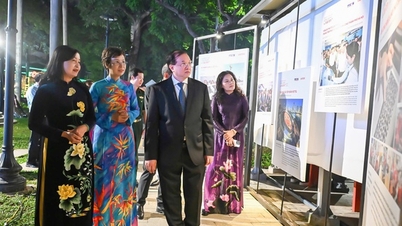







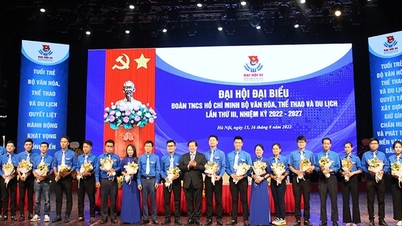
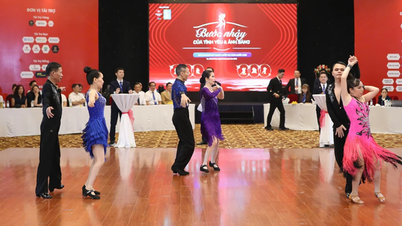



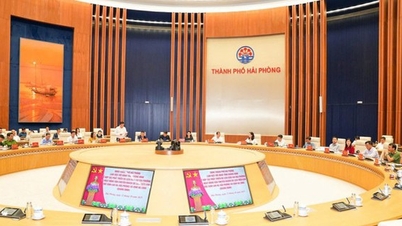





































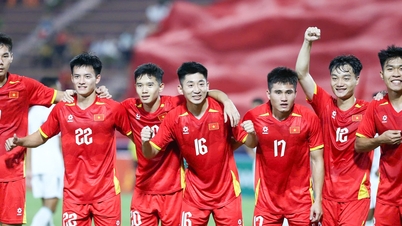





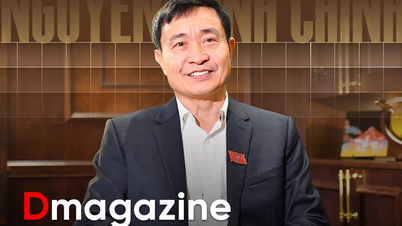


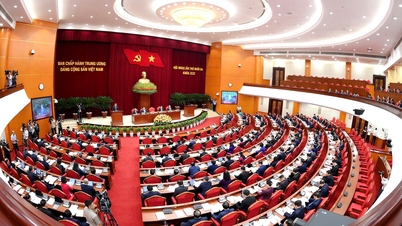
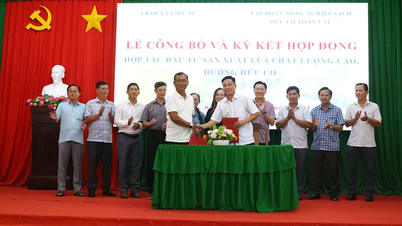

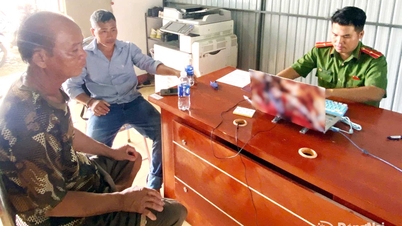


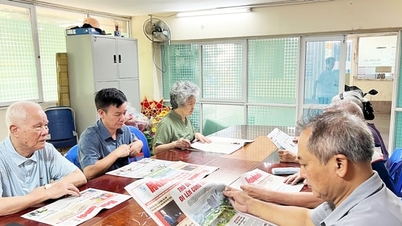



















Comment (0)